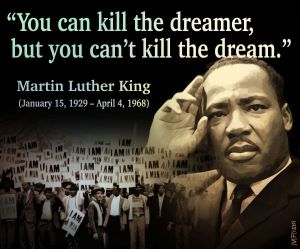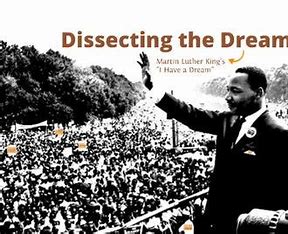In response to a commentary, (January 24, 2025 Southeast Missourian “MAGA and King’s Dream”) that attempts to draw parallels between the messages of Dr. Martin Luther King Jr. and Donald Trump, it is essential to critically evaluate the historical and ideological context of King’s work and the broader struggle against racism in America. While the author frames King’s “I Have a Dream” speech as a sermon advocating for a “return to founding principles,” this interpretation conveniently overlooks the systemic racism embedded in those principles and their application. Moreover, the author misrepresents the civil rights movement’s goals and legacy, obscuring the broader realities of racial injustice and inequality in America.
King’s Vision: A Demand for Racial and Economic Justice

Dr. King’s “I Have a Dream” speech is widely celebrated for its call to judge individuals by “the content of their character.” However, this single line cannot be divorced from the larger context of King’s activism, which demanded the dismantling of systemic racism in America’s laws, institutions, and economy. King was not advocating for a colorblind society that ignored historical injustices but for a society that acknowledged and addressed them.
King spoke out forcefully against policies and systems that perpetuated racial inequality, including segregation, discriminatory voting laws, economic disenfranchisement, and police brutality. His dream was not just about achieving superficial harmony but about restructuring systems that kept Black Americans and other marginalized groups in perpetual disadvantage. Equating this vision with Trump’s “Make America Great Again” slogan is a gross oversimplification that ignores the historical realities of systemic racism and the exclusionary undertones of the MAGA message.
Founding Principles: A Flawed Foundation
The author’s assertion that both King and Trump share a commitment to the nation’s founding principles ignores a critical truth: those principles were not extended to all Americans at the country’s founding. The Declaration of Independence’s assertion that “all men are created equal” existed alongside a Constitution that upheld slavery, disenfranchised women, and excluded Indigenous peoples. The systemic exclusion of Black Americans from these principles persisted long after the abolition of slavery through Jim Crow laws, redlining, and mass incarceration.
King recognized these contradictions and worked to hold America accountable for its failure to live up to its ideals. His activism was not about affirming the status quo but about transforming it. The civil rights movement fought to extend those so-called founding principles to everyone, and it was this expansion—not a retreat to a mythical past—that King advocated.
The Role of Government in Advancing Equality
The commentary blames “big government” for the erosion of trust in public institutions, arguing that government expansion since the 1960s has been detrimental to Americans. Yet this analysis fails to acknowledge that many of the civil rights movement’s victories—such as the Civil Rights Act of 1964 and the Voting Rights Act of 1965—were achieved through federal government intervention. These landmark laws addressed systemic inequalities that state and local governments were either unwilling or unable to resolve.
While the size and role of government can be debated, dismissing the civil rights movement as a gateway to “the false god of big government” ignores the reality that government action was necessary to combat the entrenched racism that private individuals and institutions perpetuated.
Misinterpreting King’s Legacy
The critique of diversity, equity, and inclusion (DEI) initiatives as contrary to King’s vision is another distortion of his legacy. King understood that systemic racism required systemic solutions. DEI programs aim to address historical inequities and create opportunities for marginalized groups. Reducing these efforts to a simple rejection of meritocracy or character judgment misrepresents their purpose and ignores the systemic barriers that continue to hinder progress for Black Americans and other minorities.
Dr. King’s dream was not about a return to an imagined past greatness but about building a future grounded in justice, equality, and opportunity for all. His vision challenged America to confront its deep-seated racism and fulfill its promise of freedom and equality. Attempts to align his message with the MAGA movement not only distort his legacy but also undermine the ongoing struggle to dismantle systemic racism and achieve the dream King so eloquently articulated. If we are to honor King’s legacy, we must do so by recognizing the enduring impact of systemic racism, addressing the inequalities embedded in our institutions, and striving for a future that truly reflects the principles of justice and equality for all. His words were a call to action—not a nostalgic nod to a flawed past


































